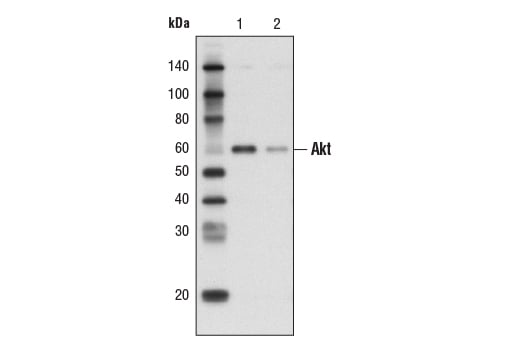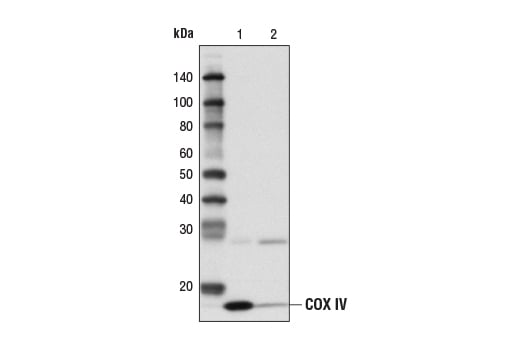 全部商品分类
全部商品分类


Protein G Agarose Beads are an affinity matrix for the small-scale isolation of immunocomplexes from immunoprecipitations (IP assays). Protein G is covalently coupled to agarose beads. Protein G exhibits high affinity for subclasses of IgG from many species (including human, rabbit, mouse, rat, and sheep) and can be used for immunoprecipitation assays with these antibodies.
Product Specifications:
Bead Diameter: ~50-150 micron per bead
Binding Capacity: ~20 mg human IgG/ml

Product Usage Information
Vortex tube briefly to resuspend the beads. Add 20-40 μl of bead slurry to each immunoprecipitation (IP) reaction. For bead washing and subsequent elution of immunocomplexes, the beads can be separated from solution by a brief 1 minute centrifugation in a microcentrifuge at 6,000 rpm. Resuspend the beads in solution by gently vortexing or rocking the tube. Please follow CST's recommended IP protocol to perform IP followed by western blot.



Specificity/Sensitivity
Species Reactivity:
All Species Expected



Supplied as a 50% slurry in 20% ethanol solution. Store at 4°C. This product is stable for 12 months.
参考图片
Immunoprecipitation (IP) of Akt from 3T3 cells using Akt (pan) (40D4) Mouse mAb #2920 and Protein G Agarose Beads. Western blot analysis was performed on the IP pellet (lane 1) and supernatant (lane 2) using Akt (pan) (C67E7) Rabbit mAb #4691.
Immunoprecipitation (IP) of COX IV from HeLa cells using COX IV (4D11-B3-E8) Mouse mAb #11967 and Protein G Agarose Beads. Western blot analysis was performed on the IP pellet (lane 1) and supernatant (lane 2) using COX IV (3E11) Rabbit mAb #4850.






 用小程序,查商品更便捷
用小程序,查商品更便捷




